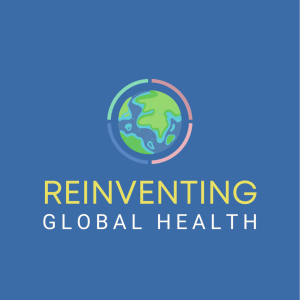
Thursday Feb 09, 2023
Global Health: Access to Medications in Developing Countries (in French) - with Robert Sebbag, MD
Main points
- 70 to 80% of the world population don’t have access to medications. It is not only a problem of cost but it also involves logistics and politics.
- HIV/AIDS changed the situation with the South African trial. The result was a tri-therapy cost 20 to 30 times lower.
- The economic model changed for drug companies. I showed what could be done for some diseases including other partners. My first challenge was malaria.
- Working with an agreement with DNDI (Drugs for Neglected Diseases Initiative) in 2004 with 3 conditions (1) Common development, (2) Cost less than 1euro in the adult and 5o cents in children for a 3-day treatment, and (3) No intellectual property and no patent. Financing came from the Global Fund to fight AIDS, TB, and malaria. Manufacturing took place in Morocco from where the medications were exported. Half a billion treatments were sold. A very large impact on malaria resulted on the global scene.
- This program was coupled with others on education from UNICEF, and mosquito nets. example. It opened the door to this kind of partnership.
- Drug alone is not enough. Infrastructure, logistics and human resources also play a role. Compliance is also an obstacle. Local bridges are indispensable. We worked with NGOs.
- TB and HIV/AIDS are major examples for compliance and observance.
- It was replicated with African trypanosomiasis (sleeping sickness). It led to the discovery of fexinidazole, the first oral treatment for the disease. It was given for free. 2-prong partnership: (1) DNDI for the clinical trials and registration, and (2) Sanofi for the pharmaceutical aspect (dosage, number of pills, for example). A 10-day oral treatment was the final result. Disease elimination is in sight.
- Strategic priority is recommended by WHO taken by local or not by local authorities. One example: The president of Chad had never heard of sleeping sickness! Predominant role of awareness.
- After African nations’ independence Sleeping sickness exploded. Mobile units of disease detection in the villages and treatment (created by Eugene Jamot) were discontinued.
- Political obstacles: (1) The place given to international collaboration, (2) Health budgets with priorities matching epidemiological data, and (3) The brain drain.
- The situation is improving due to new communication means.
- Chronic diseases are a major challenge: Diabetes, cardio-vascular diseases, psychiatric diseases. Examples: Chronic psychoses and epilepsy. Education is the #1 priority for the latter. My program at Sanofi in this regard was stopped.
- Development assistance. Multilaterally: Global Fund to fight AIDS, TB, and malaria isa big success for malaria and HIV/AIDS less with TB. So is GAVI for vaccines. Bilaterally: Depends on the country. Ivory coast and France are a success story, for example. France with Myanmar, Mali, and Burkina Faso are failure stories. In some places Russians are taking over but they do not bring healthcare assistance. Chinese only build infrastructure (hospital, roads, etc.). In Asia and South America compare favorably to Africa.
- Compliance: A new drug in the Borole family will soon be available for the treatment of sleeping sickness and it requires a single oral intake.
- NGO challenges: Duplication, lack of control, no evaluation, one-shot interventions, and more.
- Solutions: (1) Make all forms of assistance dependent upon healthcare assistance, and (2) Establish priorities followed by commensurate budget allocations. This is tied to challenges linked to migrations. One example: TB.
- Governance and intervention in countries in case of health crisis: The Ebola example.
BIO
Dr. Robert Sebbag was Vice President, Access to Medicines at Sanofi-Aventis drug Co. In his role, he participated in the company’s access to medicines strategy development for the southern hemisphere.
Prior to joining Sanofi-Aventis, he worked in Brussels for the European Pharmaceutical Industry Association (EFPIA) on creating a communications platform for the pharmaceutical companies operating in Europe.
In his prior role, he was Senior Vice President of Communications for the vaccine company, Aventis Pasteur (which became Sanofi Pasteur)
In addition to his activities within the pharmaceutical industry, he is also teaching public health courses within the Paris hospital system, focusing on tropical diseases.
He is also active within the French Red Cross and has been involved in numerous health missions in the global South.
Dr. Sebbag is a doctor in medicine with a specialty in tropical diseases and training in psychiatry.
https://www.wipo.int/meetings/en/2009/ip_gc_ge/bios/sebbag.html
Comments (0)
To leave or reply to comments, please download free Podbean or
No Comments
To leave or reply to comments,
please download free Podbean App.